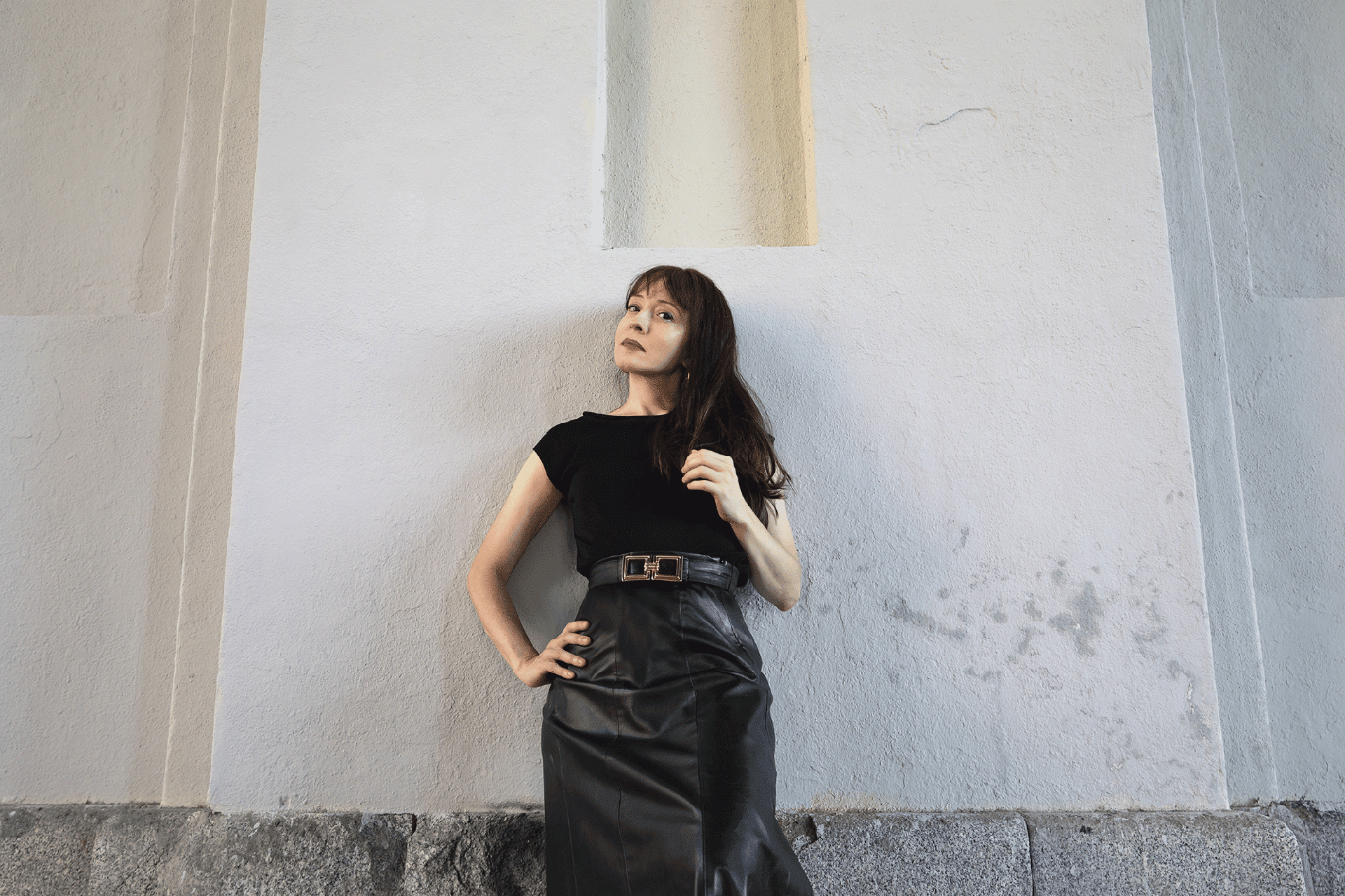The following is an interview between jazz journalist Morgan Enos and pianist, composer and bandleader Marta Sanchez. Sanchez is out with a new album – her first leading a trio – titled Perpetual Void. Therein, she’s joined by bassist Christopher Tordini and drummer Savannah Harris. Links to purchase the album, and to Sanchez’s website, can be found at the bottom of this article.
Like most artists worth their salt, Marta Sanchez is the consummate self-questioner. And she’s the first to admit it.
“In the end, I’m happy with the music. I’m very happy with the record,” the pianist and composer, who hails from Madrid, Spain, clarifies to UK Jazz News. “But during the recording process, I was never like that. That’s not who I am.”
The magic of Sanchez, though, is that she doesn’t just beat back the beast of insecurity. She rides it, and astride it, she makes evolutionary leaps.
Sanchez is out with her first-ever trio record, Perpetual Void, which features bassist Christopher Tordini and drummer Savannah Harris. Casual jazz fans, take note: your first trio album is a big deal, as there’s nowhere to hide.
Via tracks like “I Don’t Wanna Live The Wrong Life and Then Die,” and “The Absence of People You Long For,” Sanchez takes a swing at the trio format, and connects.
Sanchez is also committed to pushing her playing into fresh spaces. “I love lines that coexist, at the same time,” she explains. “In general, it’s evolving to a more abstract place, where there’s more space for improvisation.”
Keep reading for a full interview with Sanchez about the making of Perpetual Void.
UK Jazz News: How would you describe the period between SAAM (Spanish American Art Museum) and Perpetual Void?
Marta Sanchez: It was the end of the pandemic. I went through a hard mental health period, with anxiety. My mom died. A lot of things happened in my life that affected me in a hard way, and I put it in this trio record.
I don’t sit down to write music thinking I’m going to write about how I feel in that moment. But music is an abstract art. I don’t have concrete things in my mind when I write, but everything I feel and experience is somehow in the music.
UKJN: How did the band come together?
MS: I play with [bassist] Chris [Tordini] very often, because we play our weekly gig with [multi-instrumentalist] Oscar Noriega basically every Friday [at Barbès in Brooklyn].
So, I was very familiar with his playing. I wanted him in my band because he’s very, very accurate; his timing is very precise. He can play songs that are very tonal, and at the same time he can play totally free, and the music has a little bit of that.
As far as [drummer] Savannah [Harris]: I played this music in some sessions with people in New York. When you’re in a session, you don’t give a lot of instructions to people, because you’re paying attention to what people bring to the table. You see them play things as they imagine them now.
She was a really good interpreter of the music; she knew exactly how I was hearing the tune. So, I was like, This is the perfect fit for the team.
UKJN: It’s a huge milestone to make your first trio album. Why was this the time to take that leap?
MS: I had done a lot of quartet records. I wanted another context, or format, where I could express myself more as a piano player, and have more freedom.
Also, for me to develop as a player. In the end, a lot of things I do, I do to challenge myself.
UKJN: I loved your playing on David Murray’s most recent record.
MS: Thank you. I haven’t listened to that yet. [Laughs.]
UKJN: Oh, really?
MS: Yeah, I’m always scared of listening to [my playing on others’ records]. Mine, I have to, because you have to do the takes and everything; you have to [oversee the] mixes.
I think playing with David helped to develop my playing, because of the way he plays. He gave us a lot of freedom, and pushed us in a way that made us grow.
Playing as a trio is just like that. It’s more democratic, but the piano has more weight. You have to, more or less, think in the big picture. We are building the whole composition.
UKJN: Are you your own toughest critic?
MS: Yes.
Well, I’m actually getting better at it, in a sense. I’ve been very self-destructive [as concerns my] inner critic. It wasn’t helping that much; it wasn’t building anything; it was just taking a little bit of my confidence.
I feel like I’m improving on that, up to the point that it’s easier for me to see the things I don’t like and think, How can I improve that?
UKJN: How was the vibe in the studio, during the Perpetual Void session?
MS: Well, the studio was very easy to record in, because Ryan [Streber] is also a musician. So, everything is very fluent.
The vibe was good. I wasn’t super comfortable, in a way, with the headphones or whatever. I was feeling that I wasn’t sure that I was happy [with my playing], but by the end, I was like, I think we have enough material. I’m going to be happy with it.


